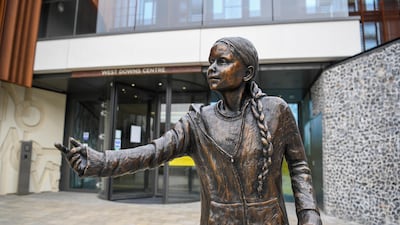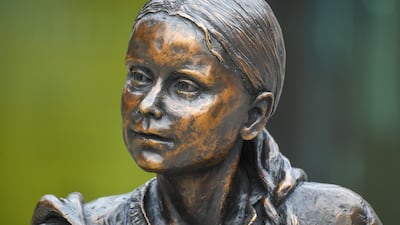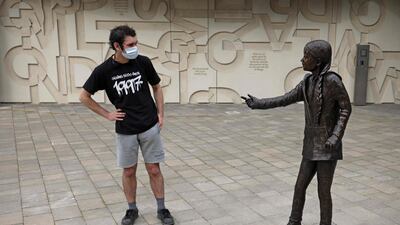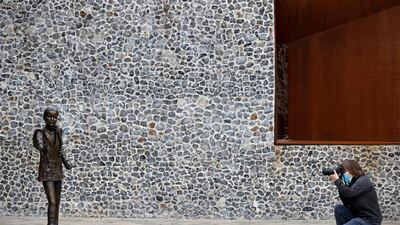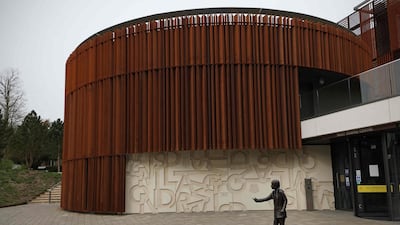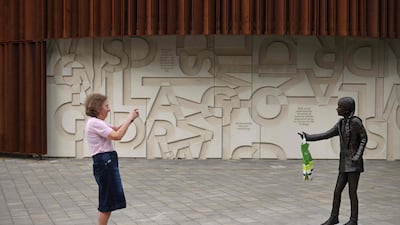A British university defended its decision to install a bronze statue of Greta Thunberg after its students described it as a "vanity project".
The University of Winchester on Tuesday unveiled a life-sized sculpture of the Swedish climate change activist, which it said represented its "ongoing commitment to sustainability and social justice".
However, the reported £24,000 ($33,000) cost of the project provoked an angry backlash from student representatives.
Winchester's University and College Union described the unveiling as a "vanity project" and said the money would have been better spent on staffing and funding student services.
"To be clear: our concerns are about the expenditure and transparency of decision-making by the university, which have long been opaque, not the subject of the statue," the union said.
Students took to social media to criticise the timing of the unveiling, while some claimed they were denied rent relief after the university closed during the coronavirus lockdown.
The university's vice chancellor, Prof Joy Carter, defended the statue, which she said symbolised its support for the upcoming Cop26 conference in Glasgow.
"No money was diverted from student support or from staffing to finance the West Downs project. Indeed, the university has spent £5.2m this year on student support," she said.
“The university’s approach to art is to commission or purchase unusual and striking pieces which embody our distinctiveness and values.
“Greta is a young woman who, in spite of difficulties in her life, has become a world-leading environmental activist.
“As the university for sustainability and social justice we are proud to honour this inspirational woman in this way.
“We know that many find her a controversial figure. As a university we welcome reasoned debate and critical conversations.
“We hope her statue will help to inspire our community, reminding us that no matter what life throws at us we can still change the world for the better."
British artist Christine Charlesworth was commissioned to create the sculpture, titled Make a Difference, in 2019.
The University of Winchester declared a climate and ecological emergency in 2019, eliminated all unnecessary single-use plastic in its buildings and aims to be carbon-neutral by 2025.
